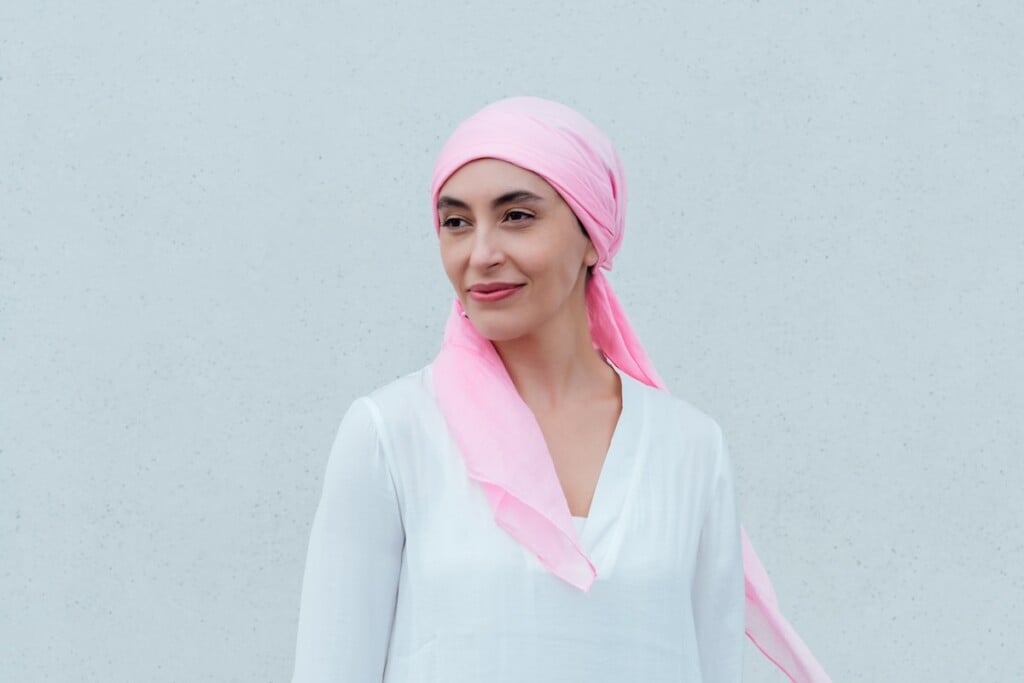After Breast Cancer
Medicine has scored remarkable gains in the battle against this scourge, but patients should understand the challenges treatment brings.

Here’s the good news: Breast cancer has never been more survivable. According to the American Cancer Society, when diagnosed in the “localized” stage (early, when the malignancy hasn’t left the breast tissue), it has a nearly 99 percent survival rate. According to data collected by the National Cancer Institute, breast-cancer mortality in the U.S. dropped 44 percent from 1989 to 2024.
“Survival rates have improved due to better imaging techniques that detect cancer early,” says Roshani Patel, M.D., a breast surgical oncologist and medical director for breast surgery at Jersey Shore University Medical Center in Neptune City. “Many breast centers tailor screening recommendations based on family history and breast density. If cancers are treated when they are smaller, the survival rate is higher.”
Besides that, says the doctor, “we have better treatments that target specific types of cancer. Patients who have cancers that grow in response to estrogen will be treated with a hormone blocker. There is another target for medications called HER2 [human epidermal growth factor receptor 2, a protein found on cells]. If the cancer is positive for that, there are antibody medications given with chemotherapy. Women have a close to 100-percent response to that treatment.” In addition, “patients with triple-negative cancer [which tests negative for hormone receptors and the HER2 protein and is considered more aggressive than other types of breast cancer] benefit from immunotherapy, which helps boost the immune system to fight the cancer.”
But that success begs the question: What should you expect after breast cancer treatment? What happens as you move through the remission and recovery stages?
ANTIHORMONE THERAPY
The most common form of breast cancer is “hormone-sensitive.” These cancer cells have receptors for hormones such as estrogen and progesterone, which cause them to grow and spread. The cancers are now treated with drugs called hormone blockers, taken orally for five to 10 years. They do more than just stop the cancer from growing. As Dr. Patel says, “These hormone blockers reduce the risk of the cancer coming back by 50 percent when taken for at least five years.” However, because these medications disrupt the estrogen in your body, they cause menopausal symptoms. Depending on which medication you are put on (there are two, tamoxifen and aromatase inhibitors), there’s a risk of “hot flashes and night sweats, mood swings, vaginal dryness and joint pain,” says the doctor. “Endocrine therapies have an impact on many aspects of patients’ lives, from weight management to sexual needs and health to personality and mood to insomnia and anxiety.”
How to manage those symptoms? Exercise can help. “Strength training has been shown to reduce side effects from joint and muscle pain by 50 percent,” says Dr. Patel. If you’re feeling stiff, not moving will make your muscles lock up more; even going on a walk will help in both the short and the long term. Something else to keep in mind: Women on aromatase inhibitors are at a greater risk of decreased bone density, which can cause problems if someone already has osteopenia or osteoporosis. “Your doctors will monitor bone density, and there are medications to help,” the doctor says. “Vitamin D and calcium supplementation may also be recommended.”
CHEMOTHERAPY
Consisting of drugs that inhibit cell division and kill fast-growing cells, chemotherapy treatment has immediate side effects that are well known— including nausea, hair loss and fatigue. Any hair loss, Dr. Patel explains, “is short-term. Your hair will grow back.” Short-term weight changes, both loss and gain, can usually be handled with dietary modification, according to the doctor. “Nausea and vomiting are typically managed with medications and some dietary modifications,” she says. “Ginger chews can help with nausea in the short term as well.”
A possible long-term side effect is neuropathy, or nerve damage that can cause numbness and tingling, particularly in the fingers and toes. Dr. Patel says: “I have my patients work with a physical therapist. There are exercises of the hand and feet that can help.” If a patient is not having success with that treatment? “Prescription medications such as Cymbalta and gabapentin can help with the side effects,” she says. The doctor also highlights the chemo “brain fog,” which can cause problems with memory, cognition and focus during or after chemotherapy. For patients she counsels patience. “Recovery can take months to years,” she says. The American Cancer Society suggests that keeping to a routine and staying active can help manage the symptoms of brain fog, and that “brain exercise” such as learning something new or doing word puzzles can help reduce it.
SURGERY
The aftermath of breast-cancer surgery, no matter how big or small, often involves either pain or a loss of sensation at the incision site. Many health professionals recommend self-massage to manage this, to break up the fibrous band of the scar tissue. Other than that, says Dr. Patel, “We use long-acting numbing medication to help with immediate postoperative pain.” She emphasizes that “pain will resolve over time. Most of the patients in our practice do not require more than Tylenol.” Still, women who opt for full reconstruction after a mastectomy often report that the new lack of sensation takes time to adjust to.
Another risk is lymphedema, or a swelling (often in the arms) caused by damaged lymph nodes. Breast-cancer surgery that also removes lymph nodes under the arm increases the risk of this, as does radiation that targets the area. Explains the doctor: “Progressive strength training and early intervention with physical therapy have been shown to reduce lymphedema.” The use of compression sleeves, Dr. Patel adds, may help patients who are at risk for this condition.
THE MENTAL TOLL
No matter how old someone is or what stage it’s caught at, going through cancer treatment is traumatic. “Often there is some level of body-image disturbance,” says Dr. Patel. “In addition, patients fear recurrence and often have anxiety about future imaging and exams.” Giving yourself time and space for a proper recovery is vital. “Remember that recovery takes months or years,” the doctor says. “Often, people feel that support from family and friends dies off once treatment is over, because they are ‘done’ or they ‘look good.’ Patients struggle with that.” In reality, of course, it’s perfectly normal for the psychological adjustment period to go way beyond the time of treatment itself. She urges people to “express fears and concerns”—finding a therapist can help, or a breast-cancer support group made up of people who’ve been through the process.
Finally, don’t lose sight of the big picture. “Women are living longer,” says Dr Patel, “and beating the odds when they work in conjunction with their care providers.”

